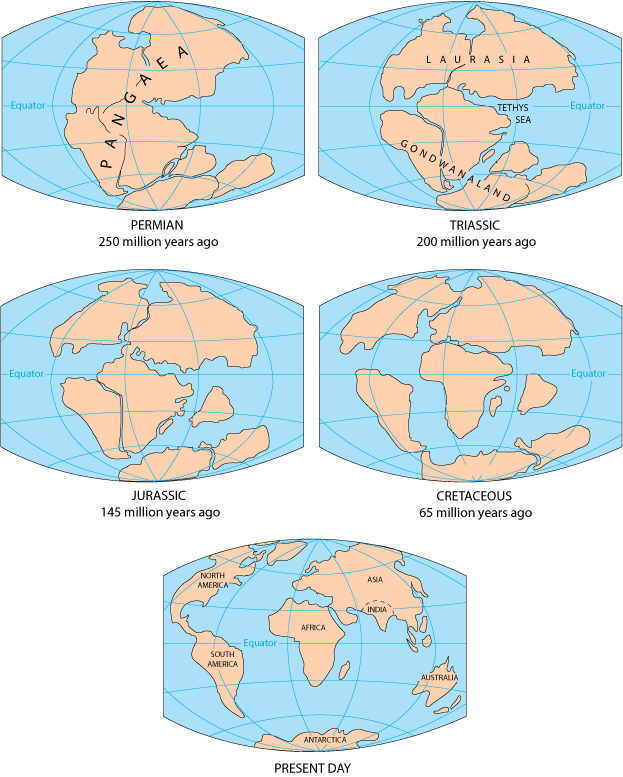Chapter 2: Plate Tectonics, the Earth’s Interior, and Geologic Hazards
As you have learned in the previous chapter, the careful and continuous application of science can lead to new ideas. When enough evidence is collected for these ideas through rigorous observation, experimentation, testing, and debate, that idea becomes a theory.
There have been many theories that have completely redefined how we view ourselves, our planet, and our Universe. There is Charles’ Darwin’s theory of Evolution, the Big Bang Theory that states the Universe formed an astonishing 13.8 billion years ago, and Einstein’s Theory of General Relativity. You don’t have to understand every detail of these theories to know that they have changed our world and society.
The groundbreaking theory that revolutionized geosciences was the understanding that our continents were once in a far different place than they are in today’s world map. This realization came with a lot of controversy and debate until we arrived at a theory that could neatly explain many geological processes including why volcanoes and earthquakes happen where they do – we call this the theory of Plate Tectonics.

LEARNING OBJECTIVES
After reading this chapter, you should be able to…
- Describe the physical and chemical properties of the layers in Earth’s interior
- Explain the current theory of plate tectonics and provide the supporting scientific evidence for this concept
- Describe the plate boundary types and how each shape distinct landforms
- Identify real-world examples of plate boundaries
- Explain how plate boundaries are connected to the distribution of geologic hazards
An accepted scientific idea that explains a process using the best available information.
The theory that the outer layer of the Earth (the lithosphere) is broken in several plates, and these plates move relative to one another, causing the major topographic features of Earth (e.g. mountains, oceans) and most earthquakes and volcanoes.

